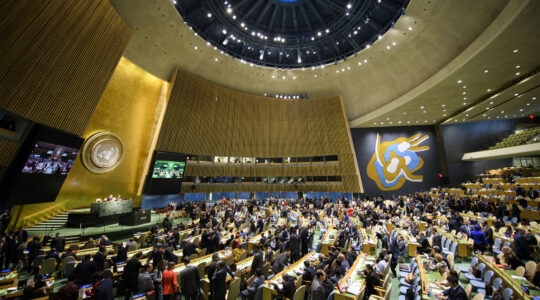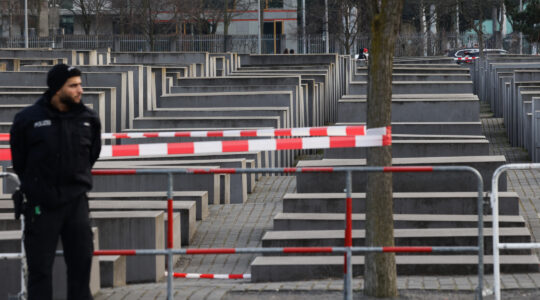WARSAW, Poland (JTA) — Archaeologists in Western Poland found the foundations of the New Synagogue, which was destroyed in 1938.
The ruins found in the Polish city of Wroclaw belonged to the second largest synagogue in pre-war Germany. The archaeological digs are being conducted with the financial support of German President Frank-Walter Steimeier.
The synagogue was built in 1865 and had four towers and over a seventy-yard-high dome. The synagogue served the liberal Jewish community. It was destroyed during Kristallnacht, or Night of the Broken Glass, in November 1938. At present, on the site where the synagogue sat, stands a monument.
Archaeological works were initiated by the Bente Kahan Foundation and the Jewish community in Wroclaw. The $28,000 used for the excavations was part of the Ignatz Bubis Prize, awarded to German President Frank Walter Steimeier. The prize is awarded to those whose public activities are characterized by the values embodied by German Jewish leader Ignatz Bubis (1927-1999). Steinmeier received the award in January 2017.
Archaeologists uncovered the foundations and fragments of the floor at the former entrance to the synagogue. The Bente Kahan Foundation wants the place to be appropriately commemorated before next year’s 80th anniversary of Kristallnacht.
JTA has documented Jewish history in real-time for over a century. Keep our journalism strong by joining us in supporting independent, award-winning reporting.





